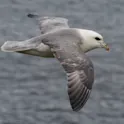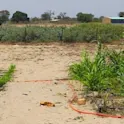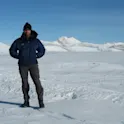
Environment
21 Feb 2022
Peace has led to more deforestation in Colombia
By K.E.D. Coan, science writer Difference between reserve and cattle ranches in Colombia. Image credit: Sebastian Di Domenico / Shutterstock In the tropics, when conflict affected countries transition to peace, deforestation often increases. But the reasons behind this trend are neither simple nor generalizable, reports a new study from Colombia. By looking at a range of agricultural and societal drivers at multiple scales, this research shows that different factors promote forest loss. Accounting for these variations will be important for developing more effective conservation strategies in the future. The consequences of peace and armed conflict for deforestation depend on the location, reports a new publication in Frontiers in Environmental Science. Using Colombia as a case study, this work presents one of the most comprehensive studies to date comparing forest loss to drivers such as coca cultivation and cattle farming during periods of peace and conflict. These insights will help make conservation efforts more effective by taking into account the land use, politics and socioeconomics on a local level. “There are other studies that show increased pressure on forests after peace agreements, but our results show that it’s very hard to generalize deforestation in the context of conflict,” said co-author Raphael […]











